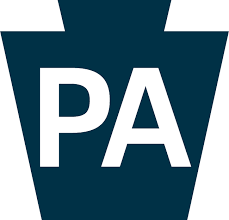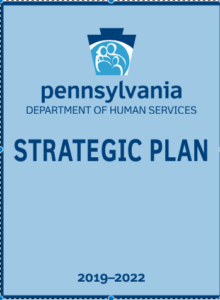COVID-19 Update: March 17, 2020
 The following is a summary of the major COVID-19-related developments in Pennsylvania today.
The following is a summary of the major COVID-19-related developments in Pennsylvania today.
Telemedicine
The Office of Medical Assistance Programs has issued guidance for providers on the use of telemedicine services for Medicaid patients – those covered both by managed care plans and on a fee-for-service basis. Learn more from the newly posted telemedicine guidelines and a separate memo to the HealthChoices managed care plans from the state.
In addition, CMS issued a waiver for certain restrictions on the provision of telemedicine services under the Medicare program. The details of the wavier are described in a Fact Sheet and FAQ.
 New Guidance From the State
New Guidance From the State
Today the state published a number of COVID-19-related resources:
- ICD-10-CM Official Coding Guidelines Related to COVID-19
- Telemedicine Guidelines Related to COVID-19
- COVID-19 Response: Pharmacies May Override Early Refill Alerts for Medications
- Directions to bypass the prior authorization requirements for CT Scans of the Chest for COVID-19 patients
- MCOPS Memo # 03 / 2020-003
- Long Term Care Facility (LTCF) Visitation Guidance
- Telehealth Guidelines Related to COVID-19 for All Behavioral HealthChoices Managed Care Organizations, Fee-For-Services Providers, and County Mental Health Authories — Statewide
Letter from Department of Health Secretary
Attached to this memo, please find a letter and its attachment issued by the PA Department of Health providing additional hospital guidance on implementing your emergency preparedness plans.
PA Insurance Department Public Notice
You can find a preview copy of a pending public notice from the insurance department related to COVID-19 at this link.
PA General Assembly Update
Both the House and Senate are currently in recess with a 12-hour call of their respective chairs. Neither chamber is expected to be in Harrisburg through the remainder of this week and we will likely receive an update on next week’s session schedule over the weekend.
The House passed temporary rules during session yesterday to allow its members to work and vote remotely should the need arise in the coming weeks/months. This temporary rule still requires majority and minority leadership to be at the Capitol for bill movement and to tally votes. The same is required of Committee Chairs should they call voting meetings during this time away from Harrisburg.
Daily State Briefing
- Department of Health Secretary Levine reported that the state is now receiving more COVID-19 test results from commercial and hospital laboratories, which are now doing most of the testing. As that number rises, the ability of officials to trace the origin of the disease is expected to decrease.
- Mass testing sites for Philadelphia and Montgomery County are still being explored. They would perform drive-through testing and would only be for people showing symptoms.
- With state liquor stores about to close, state officials are planning to meet later today to discuss possible resources for alcohol-dependent individuals who suffer withdrawal problems.
- The state will be providing guidance to dentists, who are considered very high risk, later this week.
- No hospitals are reporting to the state that they are overtaxed by COVID-19 patients at this time.
Secretary Miller’s Briefing
DHS Secretary Teresa Miller is holding an invitation-only briefing later today. If anything urgent arises we will let you know immediately. Otherwise, we will report on it tomorrow.
Resources to Consult
Pennsylvania Department of Human Services
Pennsylvania Department of Health
Centers for Disease Control and Prevention Main COVID-19 Page FAQ
Conclusion
Please let us know if you have any questions or need additional information or resources.
 The proposed budget, presented to the state legislature earlier this week, includes the following new initiatives:
The proposed budget, presented to the state legislature earlier this week, includes the following new initiatives: Included in this month’s edition are articles about:
Included in this month’s edition are articles about: In a news release, Governor Wolf said that
In a news release, Governor Wolf said that For years, county governments ran their own programs, which provided free non-emergency transportation to doctor offices for Medicaid patients. About 55,000 Pennsylvanians served by Medicaid use this program.
For years, county governments ran their own programs, which provided free non-emergency transportation to doctor offices for Medicaid patients. About 55,000 Pennsylvanians served by Medicaid use this program. The purpose of the PDL is to save money – an estimated $85 million a year, according to the Pennsylvania Department of Human Services.
The purpose of the PDL is to save money – an estimated $85 million a year, according to the Pennsylvania Department of Human Services. While DHS’s area of endeavor is broad and goes beyond health care, Medicaid is an important aspect of its work and that importance is reflected in the plan, which includes descriptions of DHS’s ambitions in the following areas:
While DHS’s area of endeavor is broad and goes beyond health care, Medicaid is an important aspect of its work and that importance is reflected in the plan, which includes descriptions of DHS’s ambitions in the following areas: